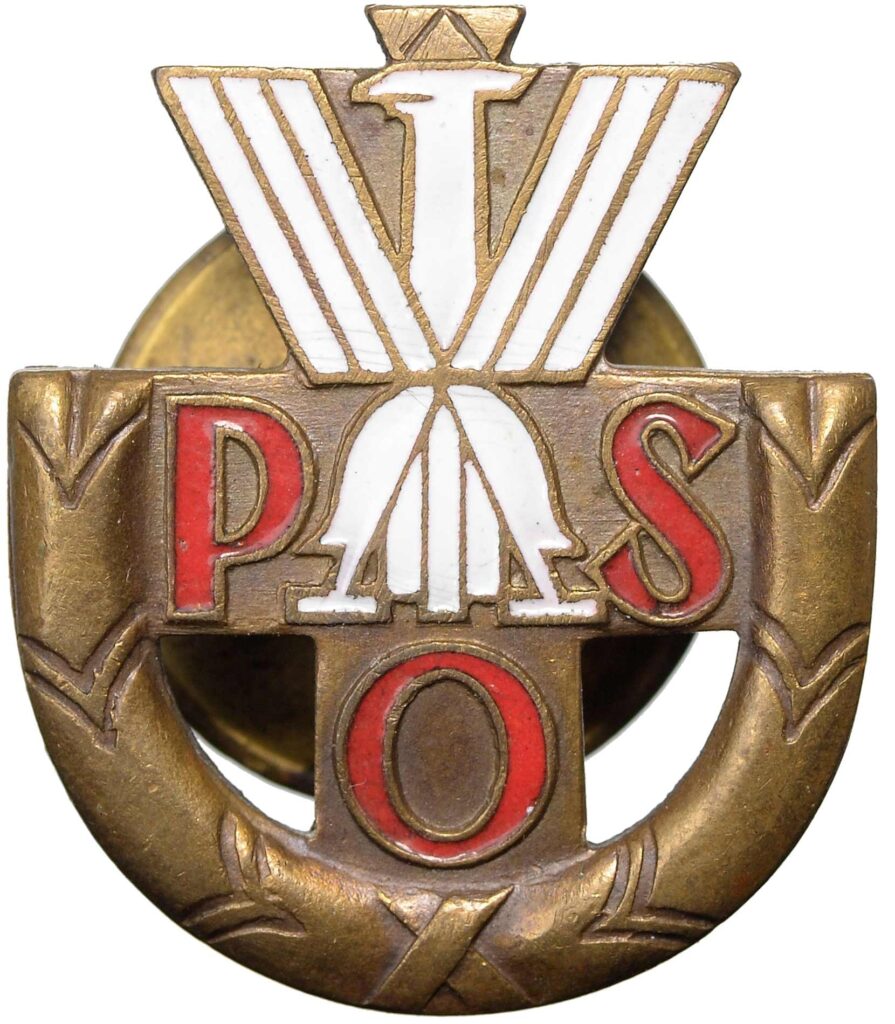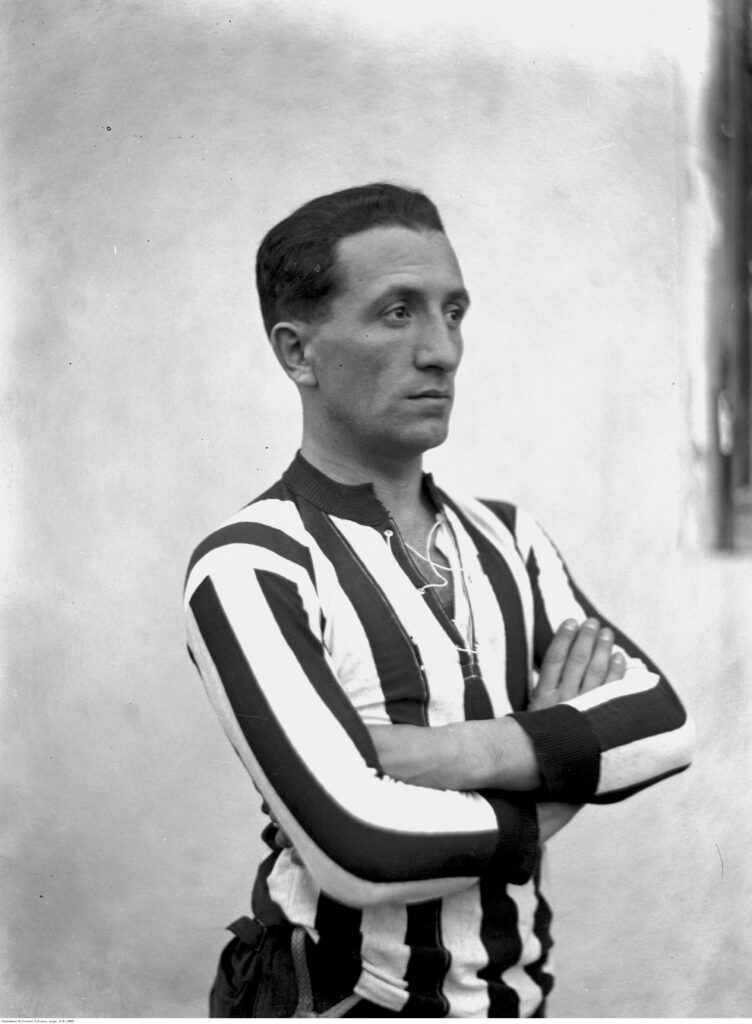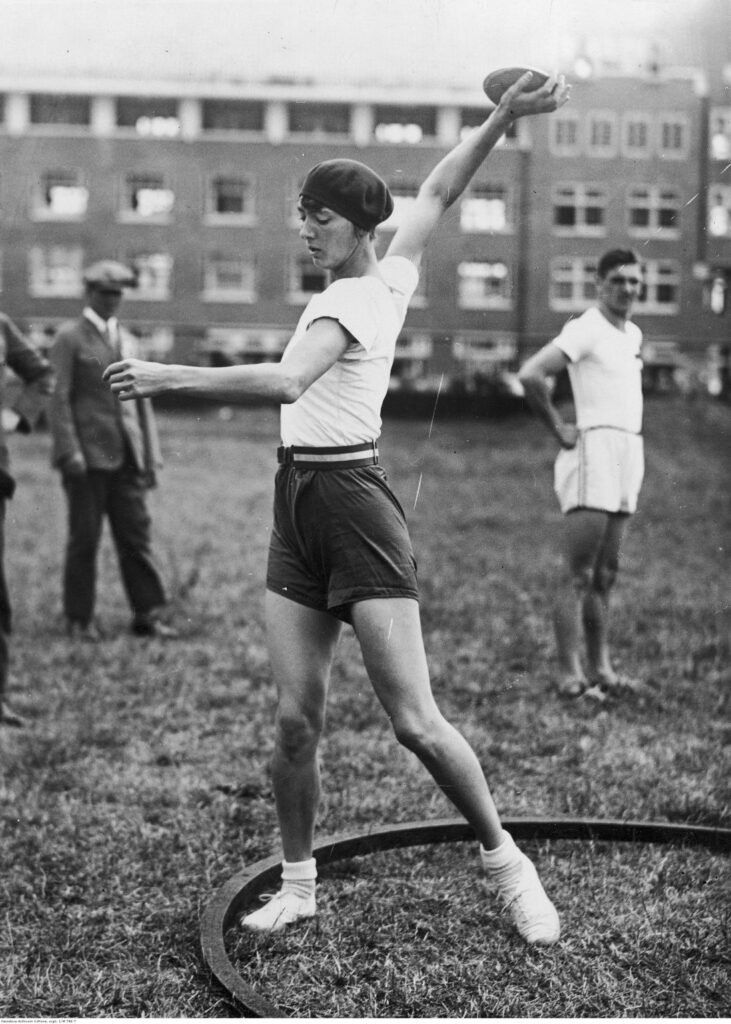Independent Poland 1918-2022
Regaining independence by Poland was not only an opportunity, but also a challenge. All areas of everyday life had to be rebuilt, or even created from scratch: the economy, the armed forces, culture, science. There is also a new aspect: sport. This field quickly began to provide us with emotions and reasons to be proud.
When Poland returned to the world map after 123 years, Polish sport was not in a very good place and form. Within the borders of the reborn state, there were only a few clubs, m.in. in Łódź, Poznań, Warsaw and Lviv. (The colours and name of the latter, Lechia Lwów, are referred to by Lechia Gdańsk, founded in 1945). Poland’s regaining of independence in 1918 was the proverbial “spark” resurrecting Polish sports activity. Sports associations were quickly reactivated, and new ones were formed. Polish sport was to return to the international arena as soon as possible. The independent government even planned to accept an invitation to the Olympics, which was to be held in 1920 in Antwerp, but due to the approaching hostile Bolshevik army, our country’s participation in this event was canceled. For the first time, Poles officially took part in the Olympics 4 years later, in Paris. It was from the French capital that they brought their first Olympic medals. Silver medals in Paris were won by track cyclists: Jan Łazarski, Franciszek Szymczyk, Tomasz Stankiewicz and Józef Lange. Adam Królikiewicz, on the other hand, won the bronze medal in equestrianism.
In the interwar period, the Polish national football team was formed. They played their first match against Hungary in 1921, unfortunately lost 1-0. The coachof the white-and-red team was Major Józef Szkolnikowski, one of the founders of the Polish Football Association. Archival reports show that the Poles were close to a draw. One of our best players, Wacław Kuchar , did not take advantage of a situation in which he could have scored into an empty goal – instead, he bent over the Hungarian goalkeeper who had been fouled a moment earlier…
Archery, fencing and horsemanship. These three sports were very popular in the Commonwealth. Historians have often referred to these fields as “Polish”. The interwar period was also marked by the flourishing of sportRailwaymen, postal workers and military personnel competed in the competition. Events were organized to activate the population and encourage physical activity. The “Run Along the Borders” or the bicycle race around our country were very popular. Outstanding sports results were awarded State Sports Badge. By the outbreak of World War II, it had been captured by approx. 800,000 people, and it was available to women from 16 years of age and men from 14 years of age.

Fig. State Sports Badge
Muniu, the best striker of the interwar period
According to many experts, the best striker of the interwar period was Leon Sperling. He came to Cracovia from Jutrzenka Kraków. In the colors of “Pasy” he played 381 matches and won the title of Polish Champion three times. He played 16 matches in the national team, and made his debut in the first historic match of the Polish national team against Hungary. Sperling was also one of the few Poles who competed at the 1924 Olympic Games in Paris.
Józef Kałuża wrote about Sperling “An excellent left-winger, a top-class technician, a great individualist. Similar in style of play to Mielech – he was inferior to him in speed, but he beat him with the maneuverability of his movements and the quality of his shot.”
Henryk Vogler added: “A tiny left-winger Sperling, called Muniu, who was able to manoeuvre his opponents so cleverly with his dribbling that the whole audience cackled with laughter.”
Fig. Leon Sperling, National Digital Archives, public domain
Halina Konopacka, a precursor of fashion for women’s sport
It is not without reason that she is called the “first lady of Polish sport”. Konopacka won the title of Polish champion as many as twenty-six times – and in various disciplines. She was an excellent athlete – she set records not only in the discus throw, but also in the long and high jump, javelin throw and shot put. She also played tennis and handball, and skied…
On July 31, 1928, Halina Konopacka won the first Olympic gold medal for Polish. She threw the discus at a distance of 39.62 meters, setting a new world record. It was an extremely moving moment, as Dąbrowski’s Mazurka was performed in Amsterdam. When the gold medalist returned from the Olympics, she was received by the Poles with great enthusiasm. Crowds gathered along her route, she was showered with flowers, and a congratulatory telegram was sent to her by the President of the Republic of Poland, Ignacy Mościcki.
Konopacka started her sporting adventure with skiing and it was only a coincidence that she found herself in the athletics section. As many as 7 times she became the world record holder in discus throw, as well as the 56-time Polish record holder, contributing to the popularization of sport among women.
Fig. Halina Konopacka, National Digital Archives, public domain
Archery World Championships
Archery was a discipline in which Poles could claim the status of pioneers. It was popularized by Mieczysław Fularski and Apoloniusz Zarychta. Fularski and Zarychta began to organize competitions, which met with great interest among Poles. Soon the Polish Archery Association was established. Poland hosted the first World Archery Championships in Lviv in 1931.
Olympic Twenty
Polish Olympians won 20 medals in the interwar period. The achievements of the Poles included three gold medals (Halina Konopacka, Janusz Kusociński, Stanisława Walasiewicz), six silver and eleven bronze. We won all the medals at the Summer Games; the first medal in winter was won for Polish only after the war by Franciszek Gąsienica-Groń (Cortina d’Ampezzo, 1956). Fencer Adam Papée, who took part in all the Summer Olympics of the interwar period, can be considered an Olympic veteran. Papée was a two-time bronze medalist in team sabre (1928, 1932).
Learn more
Ignacy Mościcki. How did the king of nitrogen become president?
Origin:
https://muzhp.pl/pl/c/1142/pierwsze-polskie-zloto-olimpijskie
https://dzieje.pl/ksiazki/sportowcy-dla-niepodleglej
https://dzieje.pl/content/wprowadzenie-2
https://pl.wikipedia.org/wiki/Lechia_Lwów
https://cracovia.pl/aktualnosci/cracovia/siedemdziesiata-rocznica-smierci-leona-sperlinga/
https://pl.wikipedia.org/wiki/Mecz_piłkarski_Węgry_–_Polska_(1921)
https://muzhp.pl/pl/c/1142/pierwsze-polskie-zloto-olimpijskie
https://niepodlegla.gov.pl/o-niepodleglej/popularnosc-sportu-w-ii-rp/






